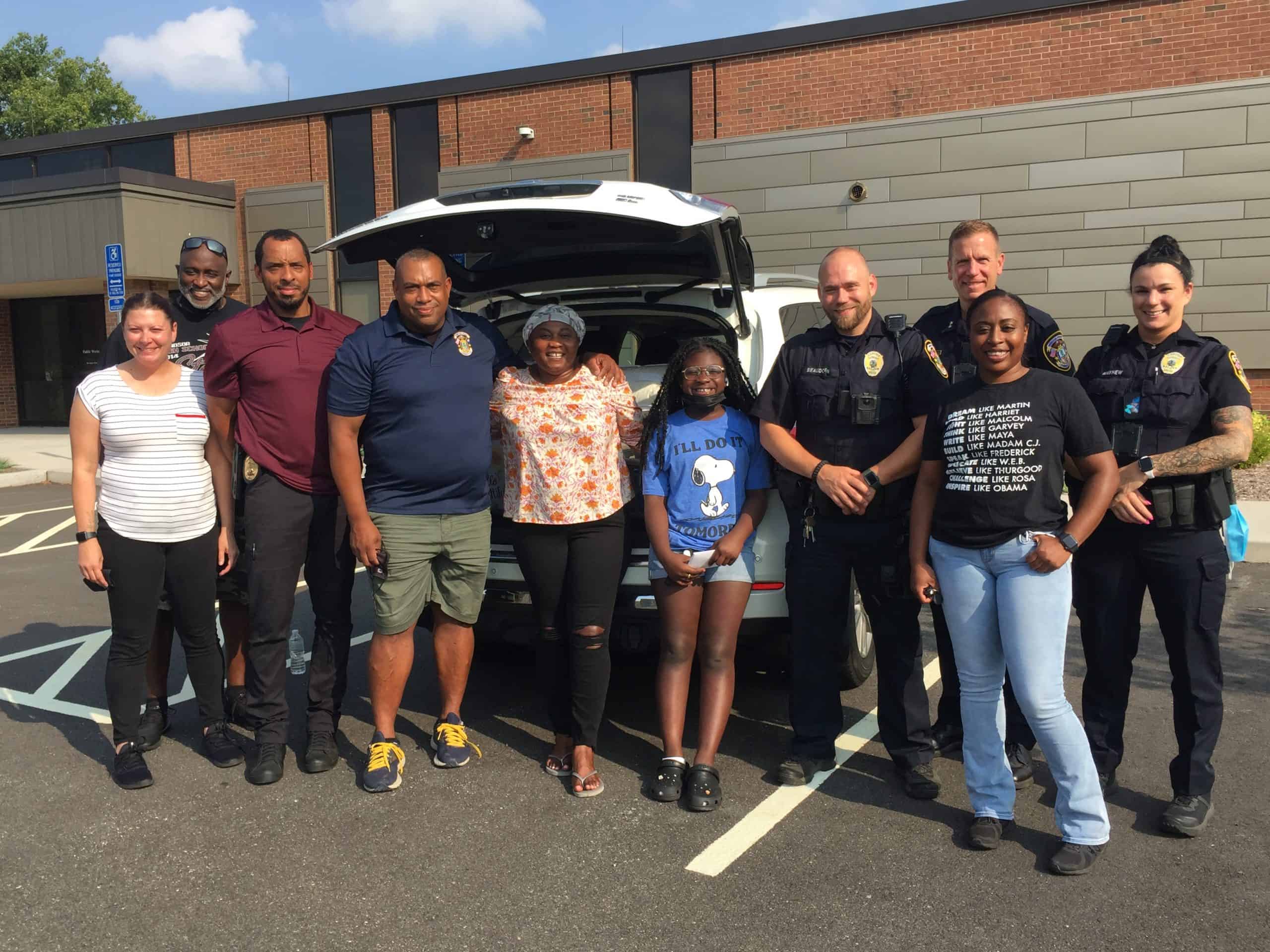Community Policing
Current Community Policing Officers
Officer Alan Mason
mason@townofwindsorct.com
(860) 688-5273 ext. 2131
Officer Joshua Amaro
amaro@townofwindsorct.com
(860) 688-5273 ext. 2115
The Windsor Police Department’s Community Policing philosophy is “to treat everyone with dignity, courtesy, and respect while utilizing all available resources to solve problems.”
Community Policing is a philosophy and an organizational strategy that promotes a new partnership between law enforcement and citizens. It is based on the premise that the police and the community must work together to identify, prioritize, and solve problems such as crime, social and physical disorder, and neighborhood decay.

Problem Oriented Policing
Police officers, detectives, and their supervisors, use a problem oriented approach to identify, analyze, and respond, on a routine basis, to problems, while addressing the underlying causes that create incidents. Officers are trained “to conduct more in-depth analyses of recurring problems; obtain problem solving assistance from other government organizations, businesses, social service agencies, and the community at large; and evaluate the resulting efforts beyond arrests or the issuance of citations or warnings.” This is done through a four stage problem solving process known as S.A.R.A. (Scanning, Analysis, Response and Assessment).
Scanning: Problem Identification
Analysis: Determining the extent of the problem
Response: Formulating tailor-made strategies and solutions to the problem
Assessment: Evaluating overall effectiveness or response
- It is a Community Based Philosophy – The direction of police efforts comes from listening to the community about what concerns them, rather than from the police assumptions about what the community wants.
- It focuses on Creative Problem-Solving – All employees are encouraged to look at the bigger picture to try to solve pattern or chronic problems.
- It promotes the Development of Trust – It emphasizes permanent work areas to develop trust and ownership of problems.
- It Establishes a Broader Role for the Officer – The officer assists the community in resolving community oriented problems.
- It Stresses Community Involvement – Community participation in problem solving is essential. Community accepts the responsibility to actively participate in problem solving.
- It is Proactive and not Reactive – It anticipates problems and prevents them from occurring or continuing.
- It Provides Help where it is Needed Most – Provides assistance to those who are most vulnerable. Provides closer contact with such groups as the elderly, and the poor.
- It Enhances Traditional Policing – Enhances through community interaction. Police will still respond quickly to emergencies and will continue to perform traditional functions.
- It Involves Everyone – All employees are involved.
- It Personalizes Police Service – Officers work directly with the community to identify and prioritize problems and to devise and implement problem solving strategies.
